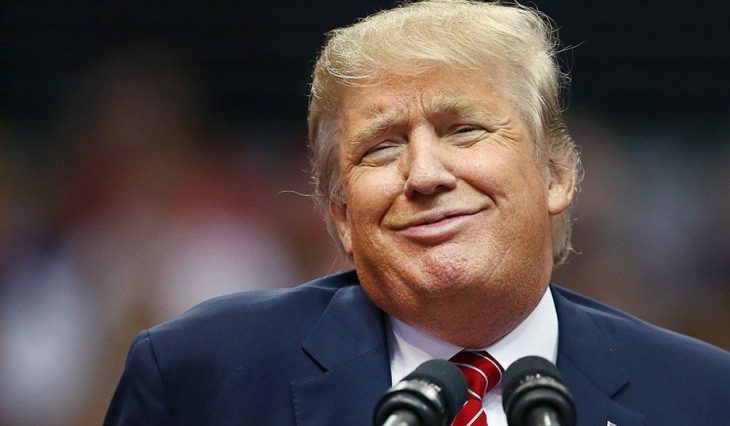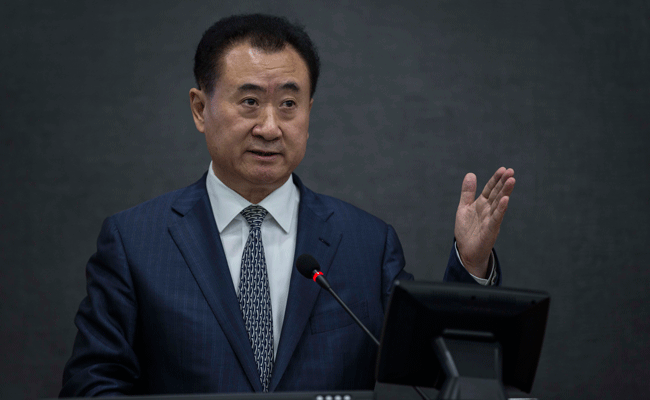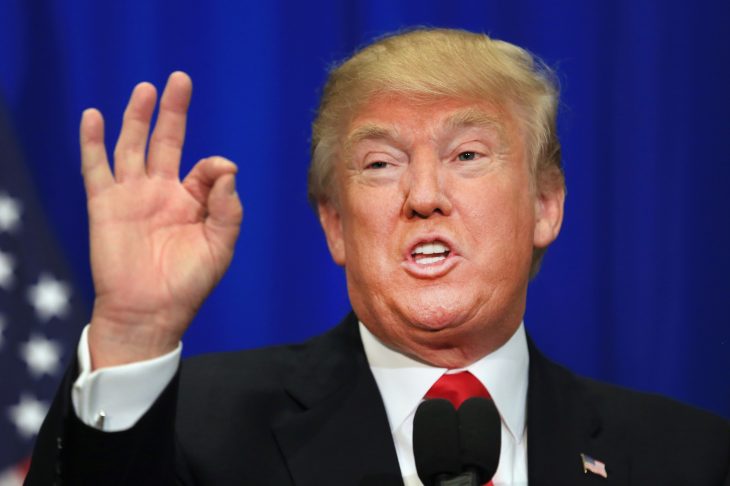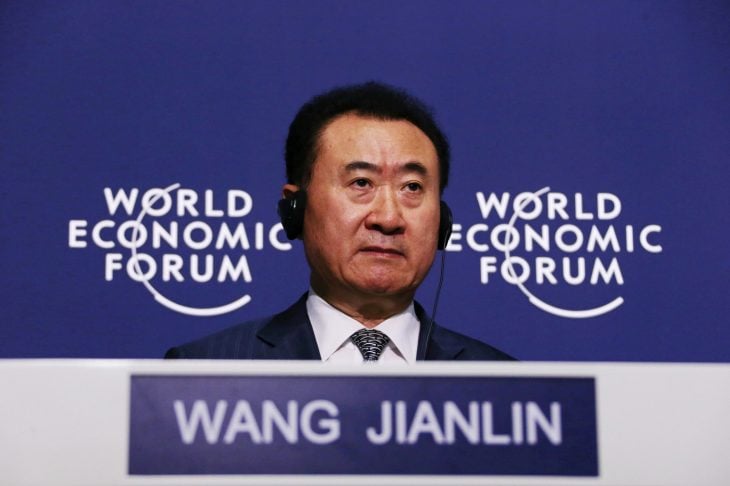This post originally appeared at TomDispatch.

(AP Photo/J. Scott Applewhite)
A top government official with energy
industry holdings
huddles in
secret with oil company executives to work out the details of a
potentially lucrative “national energy policy.” Later, that same
official
steers billions of government dollars to his former oil-field services company. Well-paid elected representatives act with impunity, routinely
trading government contracts and other favors for millions of dollars. Meanwhile, ordinary citizens live in fear of
venal police forces that suck them dry
by charging fees for services,
throwing them in jail when they can’t pay arbitrary fines or
selling their court “debts” to private companies. Sometimes the police just take
people’s life savings leaving them with no recourse whatsoever. Sometimes they
steal and deal drugs on the side. Meanwhile, the country’s infrastructure crumbles. Bridges
collapse or take
a quarter-century to fix after a natural disaster, or (despite millions spent) turn out
not to be fixed at
all. Many citizens regard their government at all levels with a weary
combination of cynicism and contempt. Fundamentalist groups respond by
calling for a return to religious values and the
imposition of religious law.
What country is this? Could it be Nigeria or some other
kleptocratic
developing state? Or post-invasion Afghanistan where Ahmed Wali Karzai,
CIA asset and brother of the US-installed president Hamid Karzai,
made many millions on the opium trade (which the US was ostensibly trying to suppress), while his brother Mahmoud raked in
millions more from the fraud-ridden Bank of Kabul? Or could it be Mexico, where the actions of both the government and drug cartels have
created perhaps the world’s first narco-terrorist state?
In fact, everything in this list happened (and much of it is still
happening) in the United States, the world leader — or so we like to
think — in clean government. These days, however, according to the
Corruption Perception Index of Transparency International (TI), our
country comes in only
17th in
the least-corrupt sweepstakes, trailing European and Scandinavian
countries as well as Canada, Australia and New Zealand. In fact, TI
considers us on a par with Caribbean island nations like Barbados and
the Bahamas. In the US,
TI says,
“from fraud and embezzlement charges to the failure to uphold ethical
standards, there are multiple cases of corruption at the federal, state
and local level.”
And here’s a reasonable bet: it’s not going to get better any time
soon and it could get a lot worse. When it comes to the growth of
American corruption, one of TI’s key
concerns is the how the Supreme Court’s 2010
Citizens United decision opened
the pay-to-play floodgates of the political system, allowing Super PACs
to pour billions of private and corporate money into it, sometimes in
complete
secrecy.
Citizens United undammed
the wealth of the super-rich and their enablers, allowing big donors
like casino capitalist — a description that couldn’t be more literal —
Sheldon Adelson to
use their millions to influence government policy.
Kleptocracy USA?
Every now and then, a book changes the way you see the world. It’s
like shaking a kaleidoscope and suddenly all the bits and pieces fall
into a new pattern. Sarah Chayes’s
Thieves of State: Why Corruption Threatens Global Security shook
my kaleidoscope. Chayes traveled to Afghanistan in 2001 as a reporter
for NPR. Moved by the land and people, she soon gave up reporting to
devote herself to working with non-governmental organizations helping
“Afghans rebuild their shattered but extraordinary country.”
In the process, she came to understand the central role government
corruption plays in the collapse of nations and the rise of
fundamentalist organizations like the Taliban, al-Qaeda and the Islamic
State. She also discovered just how unable (and often unwilling)
American military and civilian officials were to put a stop to the
thievery that characterized Afghanistan’s
government at every level — from the
skimming of
billions in reconstruction funds at the top to the daily drumbeat of
demands for bribes and “fees” from ordinary citizens seeking any kind of
government service further down the chain of organized corruption. In
general, writes Chayes, kleptocratic countries operate very much as
pyramid schemes, with people at one level paying those at the next for
the privilege of extracting money from those below.
Chayes suggests that “acute government corruption” may be a major
factor “at the root” of the violent extremism now spreading across the
Greater Middle East and Africa. When government robs ordinary people
blind, in what she calls a “vertically integrated criminal enterprise,”
the victims tend to look for justice elsewhere. When officials treat the
law with criminal contempt or when the law explicitly permits
government extortion, they turn to what seem like uncorrupted systems of
reprisal and redemption outside those laws. Increasingly, they look to
God or God’s laws and, of course, to God’s self-proclaimed
representatives. The result can be dangerously violent explosions of
anger and retribution. Eruptions can take the form of the
Puritan iconoclasm that
rocked Catholic Europe in the sixteenth century or present-day attempts
by the Taliban or the Islamic State to implement a harsh, even
vindictive version of Islamic Sharia law, while attacking “unbelievers”
in the territory they control.
Reading
Thieves of State, it didn’t take long for my mind to wander from Kabul to Washington, from a place where American-funded corruption was an
open secret to
a place where few would think it applicable. Why was it, I began to
wonder, that in our country “corruption” never came up in relation to
bankers the government allowed to sell mortgages to people who couldn’t
repay them, then slicing and dicing their debt into investment
“securities” that brought on the worst recession since the 1930s? (Neil
Barofsky, who took on the thankless role of inspector general for the
Troubled Asset Relief Fund, tells the grim tale of how the government
was “captured by the banks” in his 2012 book
Bailout.)
Chayes made me wander ever deeper into the recent history of
Washington’s wheeling and dealing, including, for instance, the story of
the National Energy Policy Development Group, which Vice President Dick
Cheney convened in the first weeks of George W. Bush’s presidency. Its
charge was to develop a national energy policy for the country and its
deliberations —
attended by top executives of all the major oil companies (some of whom then
denied before
Congress that they had been present) — were held in complete secrecy.
Cheney even refused to surrender the list of attendees when the
Government Accountability Office sued him, a suit eventually dropped
after Congress cut that agency’s budget. If the goal was to create a
policy that would suit the oil companies, Cheney was the perfect man to
chair the enterprise.
In 2001, having
suggested himself
as the only reasonable running mate for Bush, Cheney left his post as
CEO at oilfield services corporation Halliburton. “Big changes are
coming to Washington,” he
told ABC
News, “and I want to be a part of them.” And so he was, including
launching a disastrous war on Iraq, foreseen and planned for in those
energy policy meetings. Indeed, documents shaken loose in a Freedom of
Information Act suit brought by Judicial Watch and the Sierra Club
showed that in March 2001 — months before the 9/11 attacks — energy task
force members were
already salivating over
taking possession of those Iraqi oil fields. Nor did Cheney forget his
friends at Halliburton. Their spin-off company, KBR, would
receive a better-than-1,000-to-1 return on their investment in the vice president (who’d gotten a
$34 million
severance package from them), reaping $39.5 billion in government
contracts in Iraq. And yet when did anyone mention “corruption” in
connection with any of this?
Chayes’s book made me think in a new way about the long-term effects of the
revolving door between
the Capitol — supposedly occupied by the people’s representatives — and
the K Street suites of Washington’s myriad lobbyists. It also brought
to mind all those former
members of Congress,
generals
and national security state officials who parachute directly out of
government service and onto the boards of defense-oriented companies or
into
cushy consultancies catering to that same security state.
It also made me think in a new way about the
ever-lower turnouts for
our elections. There are good reasons why so many Americans —
especially those living in poverty and in communities of color — don’t
vote. It’s not that they don’t know their forebears
died for that right. It’s not that they don’t object when their votes are
suppressed. It’s that, like many other Americans, they clearly believe their government to be so corrupt that voting is pointless.
Are We in Ferguson — or Kabul?
What surprises me most, however, isn’t the corruption at the top, but
the ways in which lives at the bottom are affected by it. Reading
Thieves of State set
me thinking about how regularly money in this country now flows from
the bottom up that pyramid. If you head down, you no longer find
yourself on Main Street, USA, but in a place that seems uncomfortably
like Kabul; in other words, a Ponzi-scheme world of the first order.
Consider, for instance, the Justice Department’s 2015
report on the police in Ferguson, Missouri, about whom we’ve learned so much since Michael Brown, an unarmed black teenager, was
shot to
death on August 9, 2014. As it happens, the dangers for Ferguson’s
residents hardly ended with police misconduct. “Ferguson’s law
enforcement practices are shaped by the city’s focus on revenue rather
than by public safety needs,” Justice Department investigators found:
This emphasis on revenue has compromised the
institutional character of Ferguson’s police department, contributing to
a pattern of unconstitutional policing and has also shaped its
municipal court, leading to procedures that raise due process concerns
and inflict unnecessary harm on members of the Ferguson community.
The report then recounted in excruciating detail the extent to which
the police were a plague on the city’s largely black population.
Ferguson was — make no mistake about it — distinctly Kabul, USA. The
police, for instance, regularly accosted residents for what might be
termed “sitting in a car while Black,” and then charged them with bogus
“crimes” like failing to wear a seat belt in a parked car or “making a
false declaration” that, say, one’s name was “Mike,” not “Michael.”
While these arrests didn’t make money directly for the police force,
officers interested in promotion were told to keep in mind that their
tally of “self-initiated activities” (tickets and traffic stops) would
have a significant effect on their future success on the force.
Meanwhile, those charged often lost their jobs and livelihoods amid a
welter of court appearances.

A vigil in St. Louis following the murder of Michael Brown.(AP Photo/St. Louis Post-Dispatch, Christian Gooden)
Ferguson’s municipal court played its own grim role in this ugly
scheme. As Justice Department investigators discovered, it did not “act
as a neutral arbiter of the law or a check on unlawful police
conduct.” Instead, it used its judicial authority “as the means to
compel the payment of fines and fees that advance[d] the city’s
financial interests.”
By issuing repeated arrest warrants when people missed court
appearances or were unable to pay fines, it managed to regularly pile
one fine on top of another and then often refused to accept partial
payments for the sums owed. Under Missouri state law, moving traffic
violations, for instance, automatically required the temporary
suspension of a driver’s license. Ferguson residents couldn’t get their
licenses back until — you guessed it — they paid their fines in full,
often for charges that were manufactured in the first place.
As if in Kabul, people then had to weigh the risk of driving
license-less (and getting arrested) against losing their jobs or —
without a car — not making it to court. With no community service option
available, many found themselves spending time in jail. From the police
to the courts to city hall, what had been organized was, in short, an
everyday money-raising racket of the first order.
And all of this was linked to the police department, which actually
ran the municipal court. As the Justice Department report put it, that
court “operates as part of the police department… is supervised by the
Ferguson chief of police, is considered part of the police department
for city organizational purposes and is physically located within the
police station. Court staff report directly to the chief of police.” He,
in turn, ran the show, doing everything from collecting fines to
determining bail amounts.
The
Harvard Law Review reported that,
in 2013, Ferguson had a population of 22,000. That same year, “its
municipal court issued 32,975 arrest warrants for nonviolent offenses,”
or almost one-and-a-half arrests per inhabitant. The report continued:
In Ferguson, residents who fall behind on fines and don’t
appear in court after a warrant is issued for their arrest (or arrive
in court after the courtroom doors close, which often happens just five
minutes after the session is set to start for the day) are charged an
additional $120 to $130 fine, along with a $50 fee for a new arrest
warrant and 56 cents for each mile that police drive to serve it. Once
arrested, everyone who can’t pay their fines or post bail (which is
usually set to equal the amount of their total debt) is imprisoned until
the next court session (which happens three days a month). Anyone who
is imprisoned is charged $30 to $60 a night by the jail.
Whether in Kabul or Ferguson, this kind of daily oppression wears
people down. It’s no surprise that long before the police shot Michael
Brown, the citizens of Ferguson had little trust or respect for them.
Privatizing Official Corruption
But might Ferguson not have been an outlier, a unique
Kabul-in-America case of a rogue city government bent on extracting
every penny from its poorest residents? Consider, then, the town of
Pagedale,
Missouri, which came up with a hardly less kleptocratic way of
squeezing money out of its citizens. Instead of focusing on driving and
parking, Pagedale
routinely hit
homeowners with fines for “offenses” like failing to have blinds and
“matching curtains” on their windows or having “unsightly lawns.”
Pagedale is a small town, with 3,300 residents. In 2013, the city’s
general revenues totaled $2 million, 17 percent from such fines and
fees.
Might such kleptocratic local revenue-extraction systems, however, be
limited to just one Midwestern state? Consider then the cozy
relationship that Augusta, capital of Georgia, has with
Sentinel Offender Services, LLC.
That company makes electronic monitoring equipment used by state and
local government agencies, ranging from the Los Angeles County Probation
Department to the Massachusetts Office of the Commissioner of
Probation. Its website touts the benefits to municipalities of what it
calls “offender-funded programs” in which the person on probation pays
the company directly for his or her own monitoring, saving the courts
the cost of administering a probation system. In return, the company
sets its own fees at whatever level it chooses. “By individually
assessing each participant a fee based on income,” says Sentinel, “our
sliding-fee scale approach has shifted the financial burden to the
participant, allowing program growth and size to be a function of
correctional need rather than budget availability.”
“Profiting from Probation,” a 2014 Human Rights Watch
report,
offers a typical tale of an Augusta resident named Michael Barrett.
Arrested for shoplifting a can of beer, he entered a local court system
that was focused on revenue extraction via a kind of official extortion,
which is the definition of corruption. Even to step into a courtroom to
deal with his “case,” he had to hand over an $80 fee for a
court-appointed defense lawyer. Then, convicted, he would be sentenced
to a $200 fine and probation. Because the charge was “alcohol-related,”
the court required Barrett to wear an electronic bracelet that would
monitor his alcohol consumption, even though his sentence placed no
restrictions on his drinking. For that Sentinel bracelet, there was a
$50 startup fee, a $39 monthly “service” charge and a $12 “daily usage”
fee. In total, he was forced to pay about $400 a month to monitor
something he was legally allowed to do. Since Barrett couldn’t even pay
the startup fee, he was promptly thrown in jail for a month until a
friend lent him the money.
Such systems of privatized “justice” that bleed the poor are now
spreading across the US, a country officially without debtor’s prisons.
According to the
Harvard Law Review article, some cities charge
a “fee” to everyone they arrest, whether or not they’re ever convicted
of an offense. In Washington, DC, on the other hand, for “
certain traffic and
a number of lower level criminal offenses,” you can simply pay your
arresting officer “to end a case on the spot,” avoiding lengthy and
expensive court costs. Other jurisdictions charge people who are
arrested for the costs of police investigations, prosecution, public
defender services, a jury trial (“sometimes with different fees
depending on how many jurors a defendant requests”) and incarceration.
Watch Your Ass(ets)
Even Machiavelli, who counseled princes seizing new territory to
commit all their crimes at once because human beings have such short
memories, warned that people will accept pretty much any kind of
oppression unless “you prey on the possessions or the women of your
subjects.” So many centuries later, while we women now tend to believe
we belong to ourselves,
civil asset forfeiture is
still a part of American life. Unlike criminal asset forfeiture, which
permits the government to seize a person’s assets after conviction of a
crime, civil forfeiture allows local, state or federal law enforcement
to seize and keep someone’s money or other property even if he or she is
never charged. If, say, you are suspected of involvement with drugs or
terrorism, the police can seize all the money you have on you on the
spot, even if they don’t arrest you — and you have to go to court to get it back.
Federal asset forfeiture collections have risen from around $800 million in 2002 to almost $4.5 billion in 2014,
according to
the Institute for Justice (IJ). Governments defend the practice as a
means of preventing suspected criminals — especially high-level drug
dealers — from using their money to commit more crimes. But all too
often, it’s poor people whose money is “forfeited,” even when they’ve
committed no crime. The Pennsylvania ACLU
reported that
police take around a million dollars from Philadelphians each year in
6,000 separate cases — and not from drug lords either. More than half
the cases involve seizures of less than $192 and in a city that’s only
43 percent black, 71 percent of those seizures from people charged with
no crimes come from African Americans. If your property is seized, you
can try to go to court to get it back but,
says the ACLU, you should expect to make an average of four court appearances. Most people just give up.
Reading
Thieves of State reminded me that we’re not living
in the country many of us imagine, but in something like an American
klepto-state. Corruption, it turns out, doesn’t just devour the lives of
people in far-off nations. Right now, it’s busy shoving what’s left of
our own democracy down our throats.
Chayes documents how such corruption can lead to violent explosions
in other countries. Indeed, it was a final kleptocratic insult — a
police woman’s slap in the face after he refused to pay a bribe to
retrieve his confiscated vegetable cart — that led Tunisian
Mohamed Bouazizi to burn himself to death and touch off the Arab Spring. As Machiavelli wrote so long ago, people will put up with a lot —
torture,
mass surveillance, even a
car full of clowns masquerading
as candidates for president — but they don’t like being robbed by their
own government. Sooner or later, they will rebel. Let’s hope, when that
happens, that we don’t end up under the rule of our own American
Taliban or some billionaire reality TV star.
Rebecca Gordon is the author of Mainstreaming Torture: Ethical Approaches in the Post-9/11 United States.
She teaches in the philosophy department at the University of San
Francisco. She is a member of the War Times/Tiempo de Guerras
collective.



















